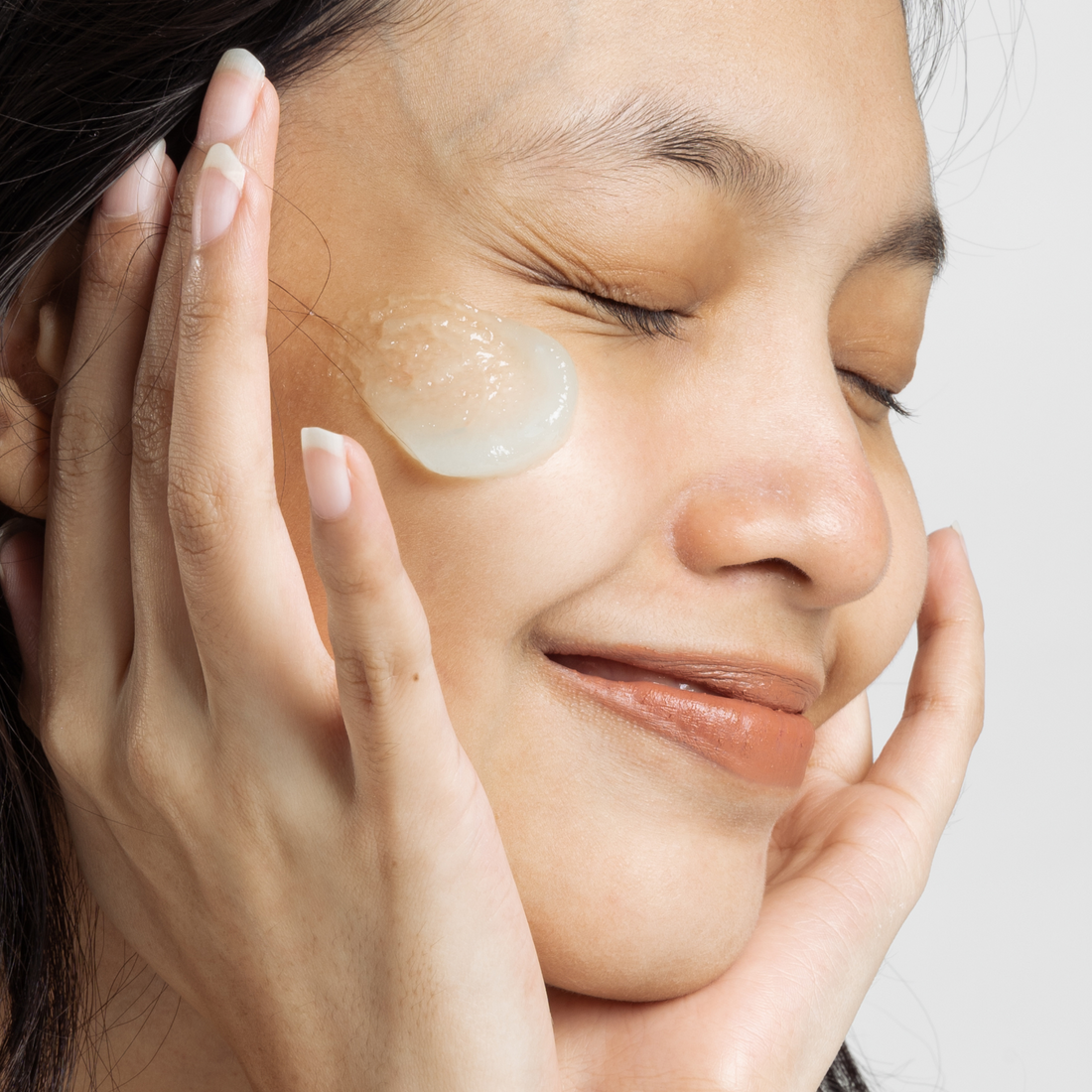
Menopause isn’t an ending — it’s a powerful transition. But for many women, the shift through perimenopause into menopause can feel confusing, overwhelming, and physically uncomfortable. Ayurveda, the ancient Indian system of medicine, offers a deeply holistic approach to navigating this phase with grace, balance, and understanding. In Ayurveda, life is divided into stages based on the doshas — Vata, Pitta, and Kapha. Menopause is considered a Vata-dominant phase of life. Vata is the dosha associated with movement, dryness, and change — which can manifest as:
• Sleep disturbances
• Hot flushes
• Anxiety or mood swings
• Irregular cycles during perimenopause
• Joint pain or stiffness
The Ayurvedic approach? Rather than “treating symptoms,” it’s about bringing the doshas back into balance with lifestyle, herbs, and daily practices.
Let’s explore how Ayurveda can support your skin through the change — naturally, gently, and powerfully.
1. Understand the Impact of Hormonal Changes on Your Skin
During perimenopause and menopause, the levels of oestrogen and progesterone in your body fluctuate, which can directly affect your skin. Oestrogen plays a key role in keeping your skin hydrated, plump, and elastic, so when oestrogen levels decrease, it can lead to dryness, thinning skin, and the development of wrinkles. Additionally, reduced collagen production can make your skin more prone to sagging and fine lines.
Progesterone imbalances can also lead to oily skin and acne, which might come as a surprise if you’ve never experienced breakouts before.
2. Hydrate, Hydrate, Hydrate
One of the most common skin concerns during perimenopause and menopause is dryness. As oestrogen decreases, your skin’s natural moisture barrier becomes weaker, which means your skin loses moisture more easily. To combat dryness:
- Use a rich, hydrating moisturiser: Look for products that contain ingredients like hyaluronic acid, glycerine, and ceramides, which help to attract and retain moisture in the skin. Apply your moisturiser right after cleansing while your skin is still damp to lock in hydration.
- Drink plenty of water: Hydration starts from the inside. Aim to drink at least 8 glasses of water a day to support skin health and overall well-being.
- Add a facial oil: Consider incorporating a nourishing facial oil like rosehip oil, argan oil, or squalane into your routine. These oils provide an extra layer of hydration and help to restore moisture balance in the skin.
Try our Moon Moisture Drops Face Oil which contains a blend of 6 plant-based oils including rosehip oil to moisturise and replenish skin.
3. Keep Your Skin’s Barrier Healthy
Your skin's protective barrier is crucial for preventing moisture loss and keeping irritants at bay. During menopause, this barrier can weaken, leading to increased sensitivity, redness, and irritation. Here’s how you can help maintain a healthy skin barrier:
- Avoid harsh exfoliation: Over-exfoliating can damage your skin barrier and lead to irritation. Opt for gentle exfoliation once or twice a week using mild exfoliants like lactic acid or enzyme-based exfoliants. These are less likely to irritate and help to smooth your skin without causing damage.
- Use a gentle cleanser: Choose a hydrating, sulphate-free cleanser that won’t strip your skin of its natural oils. Look for formulas with soothing ingredients like aloe vera, chamomile, or calendula.
6. Nourish Your Skin from the Inside
What you eat can have a significant impact on your skin’s appearance, especially during perimenopause and menopause. Here are some foods that can support your skin health during this transition:
- Omega-3 fatty acids: These healthy fats help to keep your skin hydrated and support its elasticity. Include foods like fatty fish (salmon, mackerel), flaxseeds, chia seeds, and walnuts in your diet.
- Phytoestrogens: These plant-based compounds mimic the effects of oestrogen in the body and can help balance hormones. Foods like soy, flaxseeds, lentils, and chickpeas are excellent sources of phytoestrogens and can support your skin's health.
- Antioxidant-rich foods: Include plenty of fruits and vegetables high in antioxidants, such as berries, leafy greens, and bell peppers. These foods protect your skin from environmental damage and free radicals, helping to maintain a youthful complexion.
7. Manage Stress and Get Enough Sleep
Stress and lack of sleep can exacerbate skin problems like dryness, wrinkles, and breakouts. During perimenopause and menopause, managing stress and prioritising rest can significantly improve the appearance of your skin.
- Practice relaxation techniques: Yoga, meditation, and deep breathing exercises can help reduce stress and improve your overall well-being, which in turn supports healthier skin.
- Get quality sleep: Aim for 7-9 hours of sleep each night. Your skin repairs itself while you sleep, so a good night’s rest is essential for maintaining skin vitality and resilience.
Embrace Change with Confidence
Taking care of your skin during perimenopause and menopause is all about adapting your routine to address the new challenges your skin faces. By focusing on hydration, nourishing ingredients, and gentle care, you can maintain healthy, glowing skin throughout this transition.
Remember, self-care isn’t just about products—it’s also about embracing the changes your body is going through and treating yourself with kindness. Your skin may be changing, but with the right steps, you can continue to feel confident, radiant, and beautiful during this new chapter in your life.




